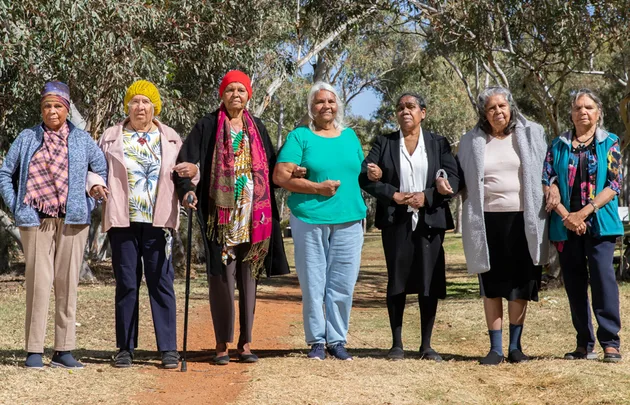It’s an icy winter’s night in Mparntwe (the Arrernte name for Alice Springs). The desert cold has a way of seeping into your bones and seizing control. Instead of curling up on the couch with a cup of tea and a blanket, a group of local grandmothers are preparing to brave the weather and patrol the city’s dark streets in high-vis jackets. The Strong Grandmothers of the Central Desert group was formed nine years ago to help vulnerable children in the community. The group includes artists, traditional owners, healers, academics and teachers. Many of them are descendants of the Stolen Generations – and all of them are staunch advocates for the children in their community. In April, the group started their night patrol after noticing the number of kids wandering the streets well past their bedtimes.
“We need to keep our kids safe,” says Arrernte elder Sabella Turner, 63, who has 15 grandchildren and 11 great grandchildren. “I came to the Grandmothers Group after my grandson got caught in the justice system. He was sent to Alice Springs Youth Detention when he was 11 for something he said he didn’t do, while hanging out with a group of older boys. After that, he was in and out of jail for years. There was no support in place for him, or kids like him.”
Every night, there are an estimated 1128 children in the NT who don’t have a safe place to sleep. Issues of overcrowding, domestic violence and substance abuse stem from chronic underfunding of housing and decades after the Intervention in Aboriginal communities, which has displaced people from their Country and broken up families.
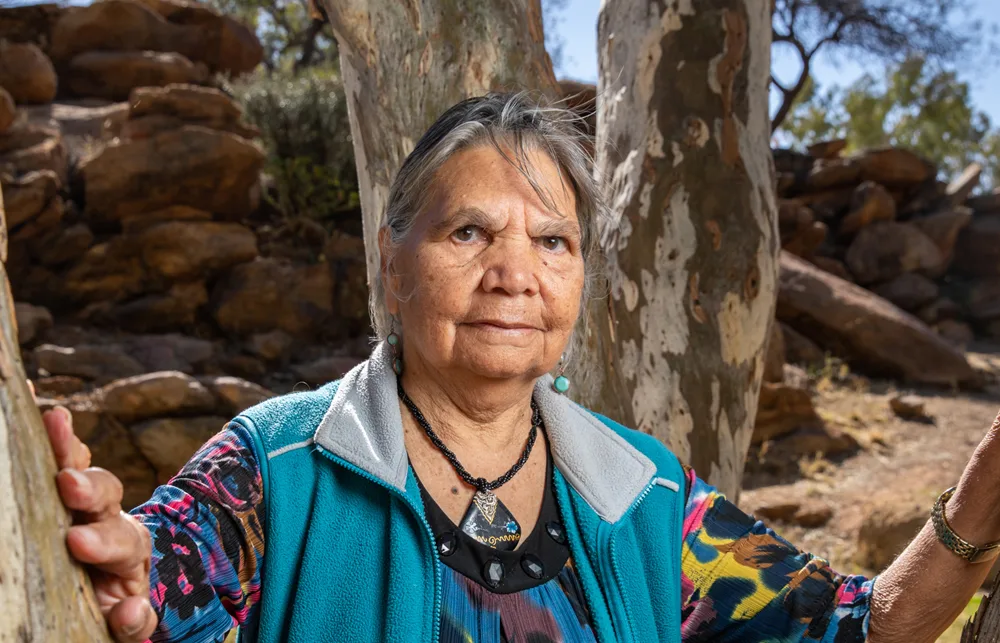
On any night in downtown Alice Springs, between 50 and a couple of hundred kids – some in primary school – are on the streets. Most are just being teenagers: hanging out with friends, chatting and laughing. A small minority are up to no good: smashing bottles, breaking into cars and vandalising shopfronts. But tabloid headlines screaming “Anarchy on the streets of Alice Springs” don’t tell the whole truth.
In fact, there has been a decline in youth crime in the past decade. Data from the Australian Bureau of Statistics shows a 51 per cent drop in youth offenders proceeded against by NT police between 2009 and 2020.
Yet the youth incarceration rate in the NT is three times the national average, and First Nations children are imprisoned at 25 times the rate of their non-Indigenous peers. Youth detention is far from being a safe or protected environment for those who need it most, yet the introduction of new legislation is making it easier to keep Indigenous kids locked up.
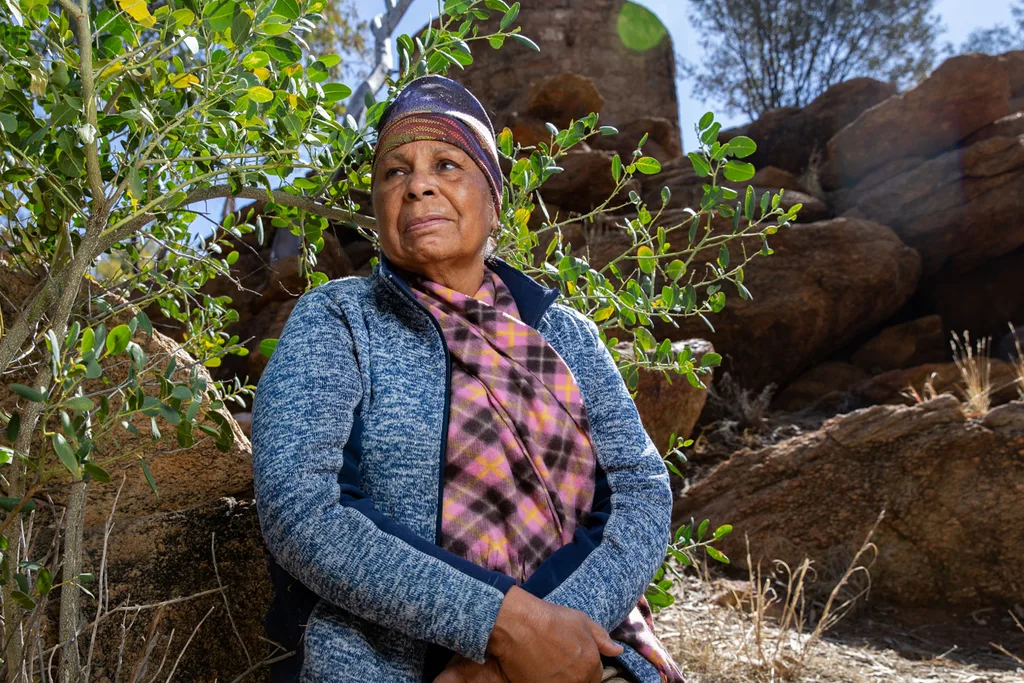
In 2016, there was widespread outrage when ABC’s Four Corners program aired its report into the NT juvenile justice system. Titled “Australia’s Shame”, the segment broadcast footage of boys at Darwin’s Don Dale Youth Detention Centre being teargassed in their cells as the guards laughed and threatened to “pulverise the little fucker”.
It also showed now infamous footage of Dylan Voller. In 2010, aged 13, he’s playing with a deck of cards in his cell in Alice Springs Youth Detention Centre. Three guards enter, one grabs him by the throat and throws him onto a mattress, holding him face down while the other two strip him naked. The next year, he’s again in his cell, crying into his singlet, when the same thing happens.
But it was the haunting 2015 footage of Voller, by then 17, hooded and shackled to a restraint chair, that became the symbol of the horrific injustices that were at play, sparking national outrage and prompting then Prime Minister Malcolm Turnbull to launch a royal commission within 36 hours of the program being broadcast.
The subsequent Royal Commission into the Protection and Detention of Children in the Northern Territory found that children in the system were denied basic needs, such as water, and were “subjected to regular, repeated and distressing mistreatment”, including verbal abuse, racist remarks, physical abuse and humiliation. It was recommended Don Dale be closed and youth detention be used as a last resort for children. The conclusion was clear: locking kids up does not stop them breaking the law and does not make the community safer.
Yet just five years on, the NT government appears to have moved even further away from the recommendations. Earlier this year, it was announced that disused sections of Don Dale – a former adult prison described as only being “fit for a bulldozer” – are being renovated to accommodate the expected influx of children being sent to detention. This is due to the strict new youth bail laws that were introduced in May, making it easier for children to be locked up.
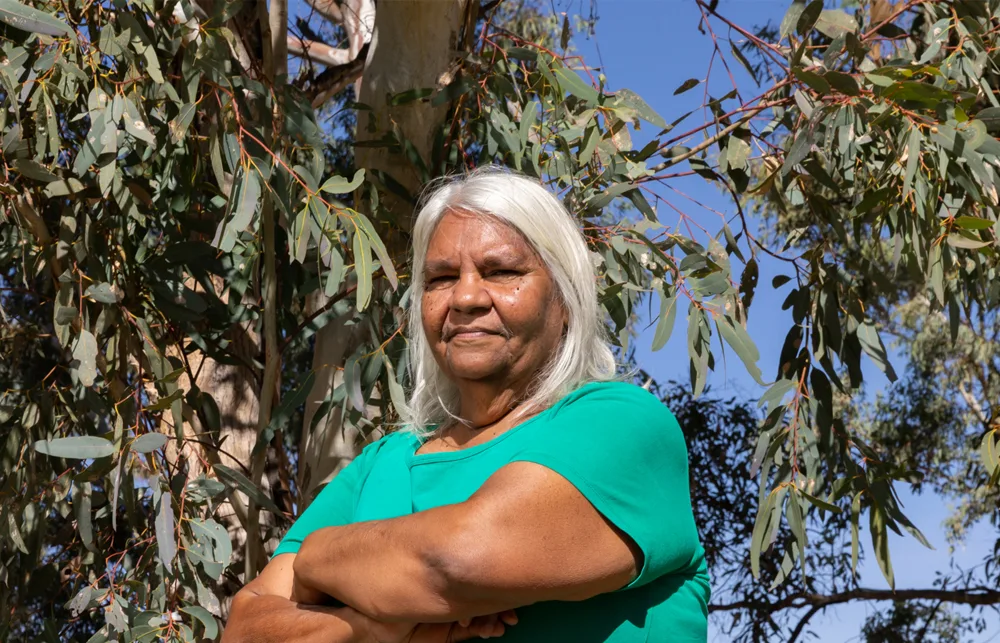
The legislation – which has been highly criticised by lawyers, all 14 Australian and New Zealand Children’s Commissioners and Guardians, and Amnesty International – gives police more power to immediately place electronic monitoring devices on children, to breath test them without an adult guardian present, and to automatically place re-offenders behind bars.
Since the laws passed, the NT government has been ordered to pay $35 million damages to up to 1200 former youths and children who were mistreated while in custody, many at Don Dale. In May last year, there were on average 21 children in detention each week; this May there were 40, most of whom were being held on remand and not yet found guilty of an offence. “It is concerning that we are already starting to see an increase in the number of children being held in detention, [including] a number of younger children under 14,” says Sally Sievers, the NT Acting Children’s Commissioner. “These recent reforms are particularly frustrating given the positive effects we have been starting to see recently, evidenced by the downward 10-year trend in crime statistics for children. These measures will have negative impacts for children, young people and the community.”
The grandmothers have seen these negative impacts first-hand – and are the ones picking up the pieces. “I don’t agree with what’s happening to kids in the so-called justice system. Don Dale should be closed, and our families should get more support,” says Margie Lynch, 60, of the Strong Grandmothers Group.
Within the community, there is a genuine fear that the laws are a death sentence. “When we realised the bill was going to pass, I felt sick to my stomach. I was heartbroken, disgusted and fearful, because the reality is a child is going to die in custody,” says Larrakia woman Mililma May, 23, who co-founded Uprising of the People with her cousin Sharna Alley and protested against the laws as they were being debated in parliament.
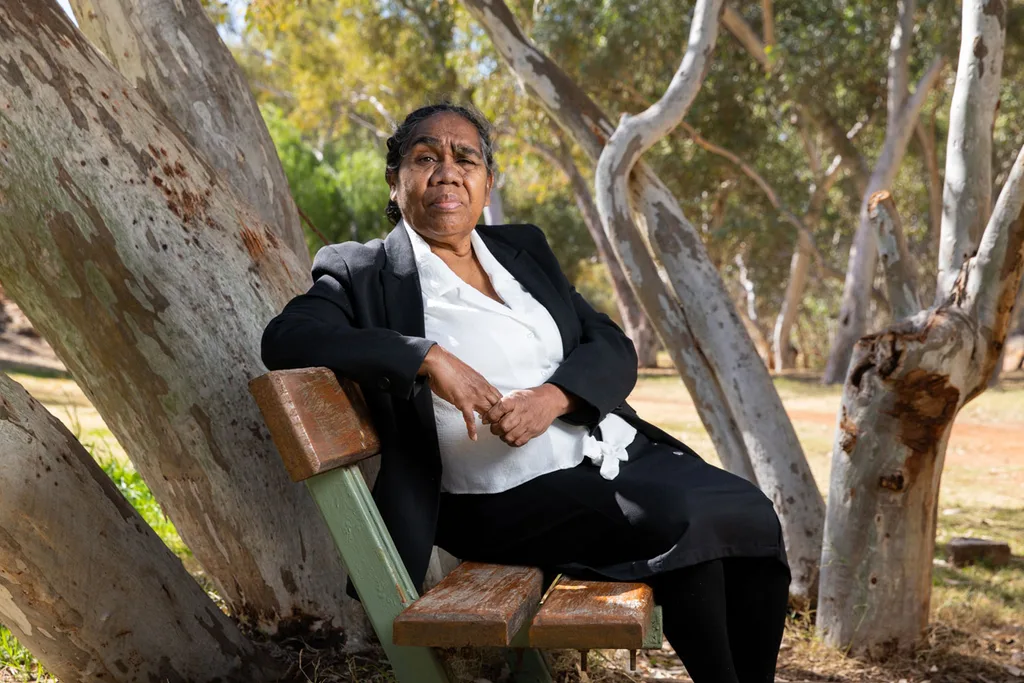
Sharna, 23, has seen how institutionalisation affects children. “A lot of my friends went to Don Dale when they were children – 13 and 14. Now they’re in their early twenties and even though they haven’t been in trouble with the police or committed any crimes in all those years, they’re still unable to find a job. They still have targets on their backs and barriers in their way all these years later. It’s heartbreaking,” she says.
The system isn’t broken, it’s working exactly how it was designed, says Mililma. “It feels like the government is quite happy to keep institutionalising our kids,” explains the law student, noting that 77 per cent of those released from youth detention return within 12 months. “There is no evidence to suggest imprisonment lowers rates of reoffending. Imprisoning children is not the solution.”
When talking about solutions to lower youth-incarceration rates, it’s important to understand the children at the heart of the issue. The Danila Dilba Health Service, which provides primary care at Don Dale, found that 90 per cent of those detained there had at least one serious developmental or cognitive delay. Many had experienced significant trauma and had complex mental needs, often compounded by foetal alcohol syndrome disorders, which makes it hard to follow instructions or understand consequences.
“We’re treating this as a justice issue, instead of a health issue. We’re locking up our youth who have a disability, rather than treating that disability,” says Priscilla Atkins, CEO at the North Australian Aboriginal Justice Agency, who advocates for community-led programs that centre on culture, education, support healing and family.
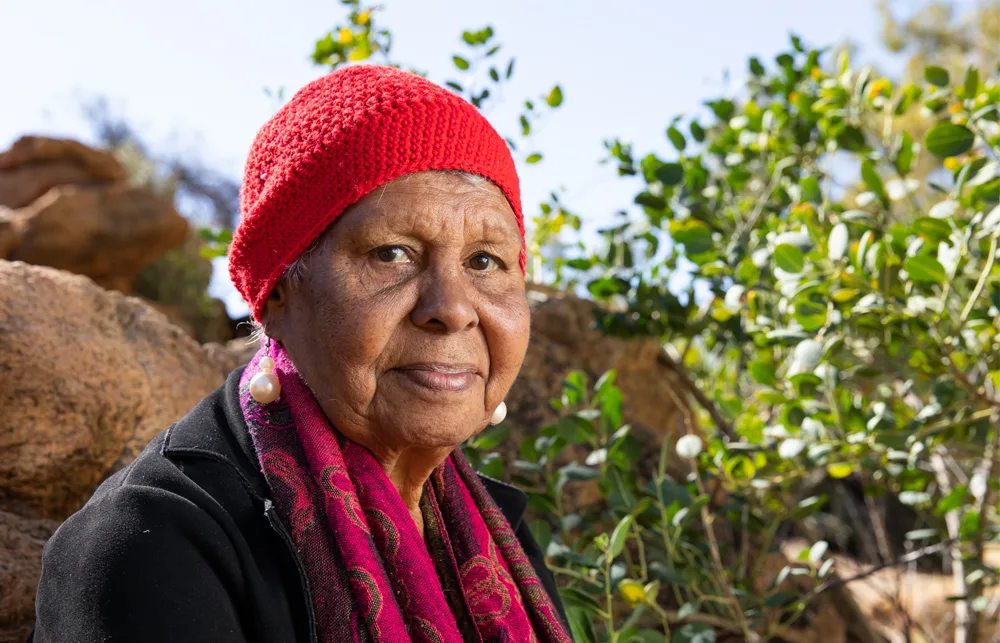
Sievers agrees. “We must address the causes of these behaviours, such as experiences of violence, homelessness, disability and disengagement from school,” she says. “Evidence shows that place-based, culturally appropriate child- and family-centred solutions will achieve far more positive results. [We know] over 60 per cent of children who complete diversion programs, such as victim offender conferencing, don’t reoffend within 12 months. It is in these programs that the NT Government should be investing, not $5 million to expand the capacity of Don Dale.”
Back in Alice Springs, the Strong Grandmothers consider the difference they could make with $5 million in funding: they could set up a permanent hub in town as a safe space for vulnerable children, buy a community bus to take kids home late at night, invest in education programs and create job opportunities. In their temporary meeting room near the Todd Mall, a hand-painted banner reads “Kids belong on Country, not in custody.” Outside, the newly built Supreme Court looms in the distance as the biggest and most modern building in town, two police officers walk by, and a patrol car drives towards the Todd River. The police presence hangs heavily in the air, day and night. A group of Indigenous girls drinking large cups of Coke from McDonald’s cross the street away from the officers and stifle their laughter.
“Our kids don’t trust the police,” says Margie Lynch. “There are some good officers, but there are others who cross the line. Our kids need nurturing, love and care, which is what we give them on patrol.” The grandmothers have seen a positive outcome in the four months they’ve been patrolling the streets. “We have kids come up to talk to us now, whereas before they didn’t have anyone to talk to, they were just running around in the dark,” adds Sabella, who is happy to provide an understanding ear, a warm cuddle and a stern lecture when needed. Many of the kids have more respect (and fear) of the grandmothers than of authorities.
The solutions are there – grassroots, Indigenous-led and community centred – and they’re working. In Darwin, there’s the B18 Wake Up Program for those at risk aged 14 to 17; the Balunu Healing Foundation, which works to instil cultural identity by building self-esteem and self-belief; and Saltbush Social Enterprises, which provides safe and secure accommodation as an alternative to remand.
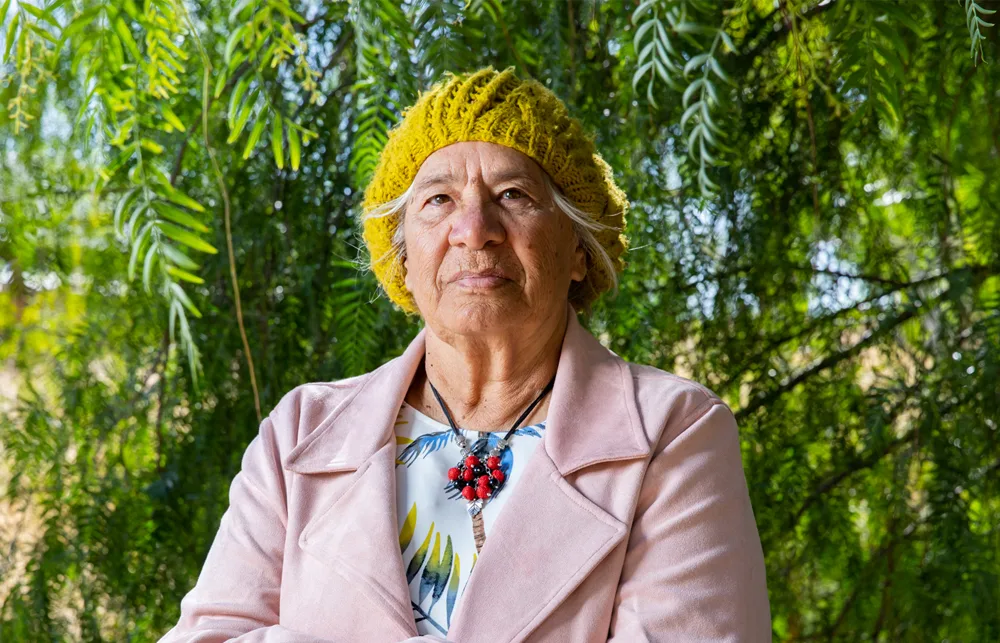
But before real change can happen, structural racism needs to be dismantled. “How can we send kids home from the streets when we know home isn’t safe for them?” asks Margie. To lower the youth incarceration rate, communities need to be supported and empowered with culturally appropriate education, safe housing, a focus on health and employment opportunities. There is also an urgent need to raise the age of criminal responsibility from 10 to at least 14, as called for by the UN Committee on the Rights of the Child and recommended by the Royal Commission into Don Dale. What isn’t needed? The NT’s bail reforms that trap more children in a cycle of incarceration, harm and trauma.
“It’s a national shame we continue to hold children in a decommissioned adult prison,” says Sievers. “We need programs and initiatives which ensure children do not become enmeshed in the criminal justice system, focusing on family and community, early intervention and support programs.”
Until this national shame is redressed, Mililma and Sharna at Uprising of the People will keep protesting, agitating for change and fighting for the next generation. When the battle feels too big, Sharna remembers a moment from a stifling hot May day on the steps of Darwin’s Parliament House. “A lot of families came to the protest, including a staunch little activist who was four or five. She was walking around, holding her sign and owning that space. It was the symbol of hope we needed. Our babies give us the strength to keep pushing forward,” she says.
On the streets of Alice Springs, the Strong Grandmothers have a message for their kin. “Us grandmothers love you from the bottom of our hearts. If it’s not safe for you, call us, we’re here for you and we’ll never give up on you,” says Sabella. She explains that her grandson, who was sent to youth detention at age 11, has now grown into a fine young man. “He comes from a strong family, and we’ve supported him. That’s our responsibility as grandmothers – to be a safe and loving space – but we all need to be accountable for looking after our kids.”
This story originally appeared in the September issue of marie claire Australia, out now.

